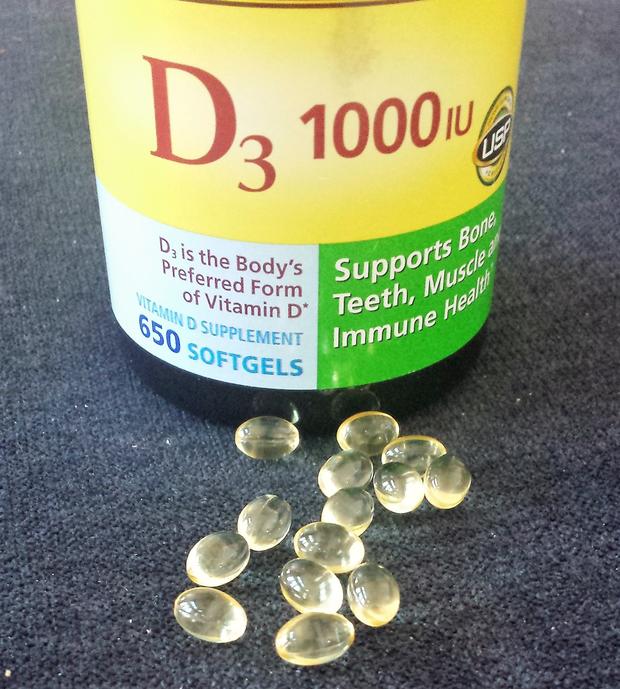Is Vitamin 'D' The New 'C' When It Comes To Colds? Not Really, But ...
(CBS4) - Vitamin D has gotten some good press this week, mainly because of a new study in the British Medical Journal which suggests that "D" is the new "C" when it comes to lowering your risk of colds and respiratory infections.
The research was actually an analysis of 25 studies over the past decade which compared people with normal or low level levels of Vitamin D in the bloodstream. It seems that those with normal blood levels of Vitamin D got fewer infections than those who were low in the tank.
But the headline doesn't tell the whole story.
The problems with the research were that it didn't look at the many other factors that might contribute to your susceptibility to catch a bug -- and you know there are many; plus, the actual benefit upon doing the math wasn't all that gigantic: the actual supposed rate of fewer infections was a whopping 2 percent. Not all that much. You'd be better off with frequent handwashing and good night's sleep.
But that's not to say that a normal level of Vitamin D a big deal.
It is.
We know that it's important for bone health. The "sunshine vitamin" helps calcium be absorbed and transported into bones to keep them thicker and stronger.
But here are a few things that "D" does as well, including some new information out today in the online Journal PLoS on its effect on muscle. It seems those adults with healthy levels of D in the bloodstream are more to build lean muscle mass -- the good type of body tissue that helps keep us strong, as well as helping keep us lean, since lean muscle speeds metabolism and burns calories even at rest.
Previous research has shown that Vitamin D can also help keep blood pressure numbers on the lower side; decrease your risk for certain cancers, and help maintain normal nerve function.
As always, a couple things to keep in mind:
The first: how do you know if you are A-Okay with your blood levels of Vitamin D? Simple. We generally include the test as part of your routine annual blood testing. If your doctor doesn't include it along with blood counts, cholesterol and so forth, don't be shy about asking for the test. We do it on the same tube of blood.
The second: how do you get Vitamin D? Obviously, the most natural is from the sun. And in this case there is no magic formula for the amount of sun that you need to get. In general, we think just a few minutes a day is all that it takes -- and your body will stop absorbing Vitamin D through the skin if you're in the sun for too long. And, obviously, you know that too much of the golden rays can be rough on the skin when it comes to wrinkles as well as skin cancer, so a lot more is not a lot better.
Food is a good source including things such as fatty fish, egg yolks and fortified milk and cereals.
Yet many of us (myself included—my level was a little low last November) do take a daily supplement, with the generally accepted range to be about 400-1000 IU per day. Only take more at your doctor's advice, and remember a lot more is not always better on your own, since too much Vitamin D every day can build up in your system and be toxic.
Get that blood tested! A good idea for a lot of good reasons.
Dr. Dave Hnida is CBS4's Medical Editor. He blogs about the latest studies and trends in the health world. Read his latest blog entries, check out his bio or follow him on Twitter @drdavehnida.




